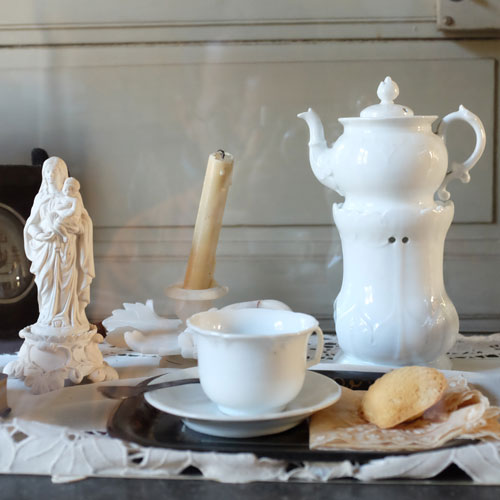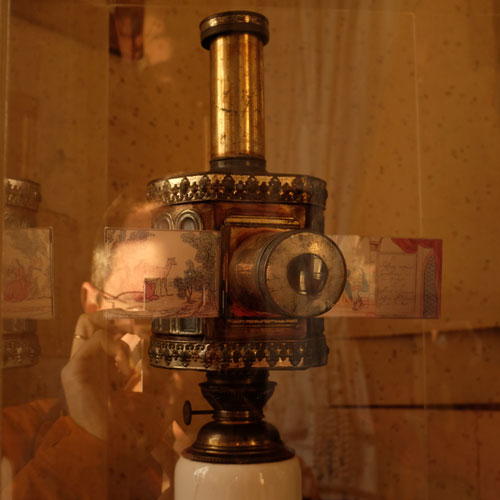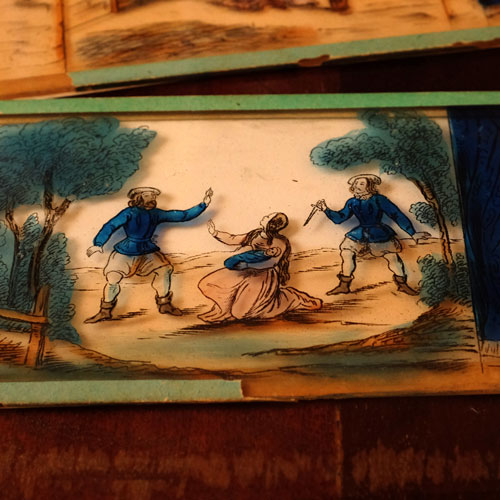“Je voyais tout en noir avant les élections, je vois tout en noir depuis.” [I saw everything black before the elections, I see everything black since.] —Ernst Renan, quoted by Henry James in a letter to William James, 14 March 1876
I dreamed there were two new hobo symbols, one for “You already know everything I need for you to know” and one for “Felonies.”
“I sat without stirring and gazed, gazed with effort and perplexity, as though I saw all my life before me, as though scales had fallen from my eyes. Oh, what have I done! my lips involuntarily murmured in a bitter whisper.” —Turgenev, “A Tour in the Forest”
“Is treatment, in particular bad treatment, ever given to a person?
“No. It is always meted out.
“Is anything else ever meted out?
“No. The only thing that is ever meted out is treatment.” —Myles na Gopaleen, The Best of Myles
“I heard Émile Zola characterize his [Droz’s] manner sometime since as merde à la vanille [vanilla shit].” —Henry James, reporting Zola’s diss of Gustave Droz in a letter to Thomas Sergeant Perry, 2 May 1876
What could Bitcoin possibly be good for other than money laundering and tax evasion? There’s an op-ed in the NYT today that maintains that it will help the poor with their banking and help the Federal Reserve manage the money supply. Surely these are the last things on earth that it would ever do—the things that it is least likely ever to do even accidentally. Governments refuse to allow gift cards that are dischargeable in multiple currencies, so it is inconceivable that they will not eventually be obliged to criminalize cryptocurrencies.
“To fear being ridiculous—is not to love truth.” —Turgenev, “A Correspondence”
equipollent (adj.): possessing equal power, identical in meaning
The two narratives are not equipollent.
—Gareth Dale, Karl Polanyi: The Limits of the Market
“It appears that my stuff has been over the heads of the readers. Imagine their stature!” —Henry James to Arthur George Sedgwick, 29 September 1876
“I believe fully, in spite of sneers, in interpreting the French Revolution by anecdotes, though not every diner out can do it.” —Emerson, journal, August 1849
“Eizenstat famously rebuked [Alfred Kahn] for publicly suggesting that rising inflation could result in a ‘very serious depression.’ Kahn responded by continuing to issue warnings of inflation-induced depression, but with the word ‘depression’ replaced with ‘banana.'” —Stephanie Mudge, Leftism Reinvented
At first depression seems to make one’s vision of the world sharpen. After all, narrowing the aperture for light increases the depth of field.
punnet (n.): small, light basket for strawberries, mushrooms, etc.
But there is a much more overwhelming sense of the strange beauty of tiny moments, such as [Oliver] Sacks’s response when Hayes dropped a punnet of cherry tomatoes on the kitchen floor (“How pretty! Do it again!”).
—Alex Clark, reviewing Bill Hayes’s Insomniac City in the TLS, 16 March 2018
semibreve: a whole note (under this terminology, a half-note is a minim, a quarter note is a crotchet, and an eighth note is a quaver)
The vaults and arches seem really to swing above you in great semibreves of rhythm.
—A. S. G. Butler, Recording Ruin
rani (n.): a Hindu queen, a rajah’s wife or widow
She had been there, unrememberingly, before, when she was small enough to ride in a backpack, little ranee on a jogging elephant, her view of the paintings relieved by the back of her father’s neck.
—Alan Hollinghurst, The Sparsholt Affair
“I don’t want to do so difficult a thing as dying without any chance of applause after having done it.” —Edward Thomas to Gordon Bottomley, quoted in Edna Longley, ed., Annotated Collected Poems
“The high, thin nose was a little lonely, a little sad, but the bud of her lips opened and closed smoothly, like a beautiful little circle of leeches.” —Yasunari Kawabata, Snow Country, trans. E. G. Seidensticker
shaw (n.): a thicket; the strip of trees or bushes forming the border of a field
. . . a law
Which was of old when one, like me, dreamed how
A thousand years might dust lie on his brow
Yet thus would birds do between hedge and shaw.
—Edward Thomas, “February Afternoon”
stook (n.): a shock; a group of twelve sheaves placed upright to support each other as the grain dries and ripens
The wheat, tawny with ripeness, had been cut and stood in tented stooks about the fields.
—Iris Murdoch, The Bell
“You make me want to bound about you and about the idea of you like an excited dog.” —Iris Murdoch to Michael Oakeshott, 4 November 1958
“One more step, and he would bid the dying gladiator be comforted by the stanzas of Childe Harold.” —Edward Thomas, critiquing the aestheticized “spectatorial attitude” of Walter Pater, quoted in Edna Longley, ed., Annotated Collected Poems
cagoule (n.): a thin waterproof hoodie
Both were swaddled in layers of fat, shiny nylon—what Alan now thought of as engorged cagoules.
—James Wood, Upstate
Believing in the Kool-Aid does not make it a good idea to drink it.
“Compared with a true artist’s conscience, Tamerlane is tenderhearted.” —Walter de la Mare, foreword to Edward Thomas’s Collected Poems (1920)
Butterflies must sometimes wish they could go back to being caterpillars.
thrawn (adj.): perverse, contrary, cross-grained, ill-tempered
He had some bread and cheese in his pocket, and this he began furtively to toss to the dogs, singling out for his favors those that seemed most thrawn in appearance.
—Gavin Maxwell, The Rocks Remain
“Inside the hall, the faces of the students and the lecturer were equally indistinct, which made everything somehow mystical, like eating a bean jam bun in the dark.” —Natsume Soseki, Sanshiro
What does it say about me that when I play fetch with the dog indoors, instead of saying, “Fetch,” I say, “Bring me the head of John the Baptist.”
Philosophy is a representation in language of what it is like and what it means to be in the world. Therefore it will always be impossible finally to distinguish it from literature and it will never be finished.
daedal (adj.): inventive, ingenious; rich, variously adorned; complex
. . . all the living things
that dwell within the daedal earth.
—Shelley, “Mont Blanc”
“And my relatives, moreover, were beginning to feel that this oldness in him was abnormal, excessive, shameful, and the sort of thing bachelors deserve, as do all those of whom it seems that the great day that has no day after is longer than it is for others because for them it’s empty, the moments in it adding up, from morning onward, without ever having to be divided later with children.” —Proust, Du côté de chez Swann
Listening to Nina Simone, I realize that I miss hearing people ask God to damn something.
How far away is Joan Didion from the character in Play It as It Lays who talks about “third-string faggots”?
Oh, ’tis a joy divine on summer days
When not a breeze is stirring, not a cloud,
To sit within some solitary wood,
Far in some lonely wood, and hear no sound
Which the heart does not make, or else so fit
To its own temper that in external things
No longer seem internal difference.
All melts away, and things that are without
Live in our minds as in their native home.
—Wordsworth, fragment 3 from the Christabel notebook
solatium (n.): a sum of money given to make up for loss, inconvenience, or injured feelings
The master in Osaka (Okubata’s older brother) had given him a modest solatium upon his being disinherited, and he had been eating into his capital ever since.
—Junichiro Tanizaki, The Makioka Sisters
To revisit the past is to say good-bye to it again, which is unbearable.
“Is it possible that any editor should endure any inconvenience without meditating an article?” —Trollope, Phineas Redux
A friend’s counsel to Phineas Finn, after he is slimed by Quintus Slide, the 19th-century version of an internet troll: “I don’t see what you can do. You have encountered a chimney sweeper, and of course you get some of the soot.”
Humans vs. AI: Our disadvantage is that we’re all essentially programmed the same, but we’re building many different AIs. There’s only one kind of “us” to be figured out, but every day someone puts together a new kind of “them.”
Arthur Russell sings in the key of heterosexuality with the same acceptance of generic constraint that ABBA sings in the language of English. One’s appreciation is in both cases heightened by the awareness that it isn’t natural.
“In a world where we are all transparent—unable to deceive each other—it might be rational to deceive ourselves about rationality.” —Derek Parfit, Reasons and Persons
“She began crying and laughing. This conflict of tears and laughter always reminds me of the flickering and spluttering of a brightly burning candle when one sprinkles it with water.” —Chekhov, “The Privy Councillor”
“It feels ominous to drive through West Texas with a clean windshield. Road trips always used to be accompanied by the incessant splatter of death. . . . The absence of insects seems to be part of a general diminution of life.” —Lawrence Wright, God Save Texas
clout (adj.): cloth, rag
But whenever did a pan or a clout—when kept clean and tidy—refuse to do its duty, or rebel against its lady?”
—T. F. Powys, Unclay
Music continued for a decade or two after it ended, but unless you already knew the provenance of one of these later songs, you couldn’t figure out when it had been recorded. You couldn’t even write an algorithm that could figure it out. The songs were already outside of music’s history.
After one has learned to manage the isolation and poverty, there is still the challenge of writing itself.
slane, or slean (adj.): a long-handled spade, with a wing or two wings on the blade, used for cutting peat
The men-folk were going to the turf-bogs with their sleans on their shoulders.
—Patrick Kavanagh, The Green Fool
barm (vi.): mix with yeast or leaven; rise in froth or fermentation
The porter was beginning to barm in bellies.
—Kavanagh, Green Fool
creel (n.): large wicker basket
The pot of potatoes was turned out on a creel.
—Kavanagh, Green Fool
Bassani captures perfectly the way that the mere visibility of a victim or former victim spurs in a fascist (or a fascist-leaning bystander) the impression of being unfairly attacked.
The word “mother” is always to some extent in the vocative.
The sonorous, etymologically spurious second “o” in the word “reportorial” is the reason one likes to say it so often.
“Be nice,” the man growled to his dog.
limber (n.): detachable, two-wheeled forepart of a gun-carriage, used for transporting ammunition
“And also, your honour, Artemyev got drunk yesterday, and the lieutenant ordered him to be put in the limber of a spare gun-carriage.”
—Chekhov, “The Kiss”
“And certainly this doesn’t mean that M. Legrandin was insincere when he thundered against snobs. He was incapable of knowing—on his own, at least—that he was one, because we only ever know the passions of other people, and insofar as we manage to know of our own, it’s only from others that we’re able to learn it. On us the passions only act in a secondary way, through the imagination, which substitutes for primary motives intermediate ones that are more decent. Legrandin’s snobbery never advised him to go see a duchess frequently. It charged his imagination with making this duchess appear to be arrayed with all the graces.” —Proust, Du côté de chez Swann; the passage also seems to describe the operation of unconscious racism
“The ferocity of the financial crisis in 2008 was met with a mobilization of state action without precedent in the history of capitalism. Never before outside wartime had states intervened on such a scale and with such speed. It was a devastating blow to the complacent belief in the great moderation, a shocking overturning of prevailing laissez-faire ideology. To mobilize trillions of dollars on the credit of the taxpayer to save banks from the consequences of their own folly and greed violated maxims of fairness and good government. But given the risk of contagion, how could states not act? Having done so, however, how could they ever go back to the idea that markets were efficient, self-regulating and best left to their own devices? It was a profound challenge to the basic idea that had guided economic government since the 1970s. It was all the more significant for the fact that the challenge came not from the outside. It was not motivated by some radical ideological turn to the Left or the Right. There was precious little time for thought or wider consideration. Intervention was driven by the financial system’s own malfunctioning and the impossibility of separating individual business failure from its wider systemic repercussions. Martin Wolf, the Financial Times‘s esteemed chief economic commentator, dubbed March 14, 2008, ‘the day the dream of global free-market capitalism died.'” —Adam Tooze, Crashed
“I once heard a filmmaker say that in order to be truly creative a person must be in possession of four things: irony, melancholy, a sense of competition, and boredom.” —Lisa Halliday, Asymmetry
“He who undertakes anything, thinking he is doing it out of a sense of duty, is deceiving himself and will ruin everything he touches.” —Auden, The Prolific and the Devourer
There is a charm in solitude that cheers,
A feeling that the world knows nothing of;
A green delight the wounded mind endears
After the hustling world is broken off,
Whose whole delight was crime—at good to scoff.
Green solitude, his prison, pleasure yields,
The bitch fox heeds him not; birds seem to laugh.
He lives the Crusoe of his lonely field
Whose dark green oaks his noontide leisure shield.
—John Clare, “Solitude”







